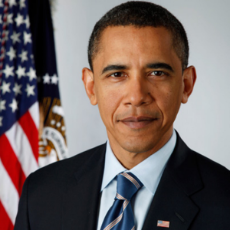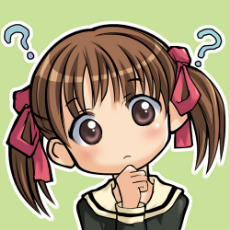Anyone monarchists/faschists/natsocs here?
I understand that the left has severly disturbed the portrayal of those forms of government but I never really bothered to study them either.
What speaks for them in your opinion?
Any good reads about them?
What are the cons and issues these forms have in your opinion?
What do you think about the lack of personal freedom in authoritarian societies?
/mlpol/ - My Little Politics
Archived thread
Oh and I forgot to ask Ancaps about global economy, division of labor on international level and economical interaction with non-ancap states.
MONARCHY
Pros: You get a leader that trained his whole life to lead
Cons: You might get a lazy/incompetent shithead.
FASCISM:
Pros: You get a leader with pretty much everything under his control. The will of the people united and replaced with the will of one ruler.
Cons: That ruler might be a lazy/incompetent shithead.
NATSOC:
Pros: It's like fascism with all the dumb shit taken out. A country working together for the betterment of that country. Even when "Le strong ruler" dies, it won't fall apart until the last countryman dies.
Cons: Literally none, except Liberty Prime from Fo3 will suddenly become dated.
Pros: You get a leader that trained his whole life to lead
Cons: You might get a lazy/incompetent shithead.
FASCISM:
Pros: You get a leader with pretty much everything under his control. The will of the people united and replaced with the will of one ruler.
Cons: That ruler might be a lazy/incompetent shithead.
NATSOC:
Pros: It's like fascism with all the dumb shit taken out. A country working together for the betterment of that country. Even when "Le strong ruler" dies, it won't fall apart until the last countryman dies.
Cons: Literally none, except Liberty Prime from Fo3 will suddenly become dated.
>>99212
>Cons: Literally none, except Liberty Prime from Fo3 will suddenly become dated.
See WWII and ask Germany how things are going today. Any system will fail because all humans are flawed. No system removes human flaws.
>Cons: Literally none, except Liberty Prime from Fo3 will suddenly become dated.
See WWII and ask Germany how things are going today. Any system will fail because all humans are flawed. No system removes human flaws.
>>99234
Germany survived being the target of Jews worldwide, it survived having every country on the planet worth something and many that weren't attacking it, and it survived until it put a Liberal in charge and Merkel started trying to exterminate this "dangerous" ethnic group.
Germany survived being the target of Jews worldwide, it survived having every country on the planet worth something and many that weren't attacking it, and it survived until it put a Liberal in charge and Merkel started trying to exterminate this "dangerous" ethnic group.
>>99242
It underwent harder stress tests than any other ideology ever has, and it eventually broke.
But hey, it only lasted a few years against the combined might of the rest of the planet while doing more to the Jews than any other ideology, so oy vey, my man, I guess you've BTFOd us icky Nazis forever! Guess I should trade my swastika in for a Discord Prime subscription like you! Great job, Vril Anon, you're definitely not starting to annoy people at all.
It underwent harder stress tests than any other ideology ever has, and it eventually broke.
But hey, it only lasted a few years against the combined might of the rest of the planet while doing more to the Jews than any other ideology, so oy vey, my man, I guess you've BTFOd us icky Nazis forever! Guess I should trade my swastika in for a Discord Prime subscription like you! Great job, Vril Anon, you're definitely not starting to annoy people at all.
>>99244
Hehehe. https://en.wikipedia.org/wiki/Straw_man I don't accept your extrapolation.
Some of NatSoc was fine, as shown by the 6 years of prosperity prior to WWII. But Hitler never minded using violence to solve problems, and got too arrogant. This is how the wheel turns to the next ideology; success breeds failure through arrogance. Violence adds seeming ligitimacy to the other side.
Hitler was wrong, but NatSoc has some good ideas within it.
Hehehe. https://en.wikipedia.org/wiki/Straw_man I don't accept your extrapolation.
Some of NatSoc was fine, as shown by the 6 years of prosperity prior to WWII. But Hitler never minded using violence to solve problems, and got too arrogant. This is how the wheel turns to the next ideology; success breeds failure through arrogance. Violence adds seeming ligitimacy to the other side.
Hitler was wrong, but NatSoc has some good ideas within it.
>>99234
>No system removes human flaws.
Then lets have a parliamentary robot monarchy. Make a robot with perfect logic the king and supplement the king with human PMs.
>No system removes human flaws.
Then lets have a parliamentary robot monarchy. Make a robot with perfect logic the king and supplement the king with human PMs.
1514611418.jpg (190.0 KB, 1200x1200, barack-obama-12782369-1-40….jpg)

>>99280
>Humans won't emotionally react to a different "race/species" controlling them?
Nope. Besides, that's what the human parliamentary members are for.
>Humans won't emotionally react to a different "race/species" controlling them?
Nope. Besides, that's what the human parliamentary members are for.
>>99212
Natsocs and fascists both suffer from the same problem, that is ambitious men are put into power. Ambition isn't bad but needs to balanced out which is why fascism rarely lasts long and national socialism died out in an explosion of glory. Monarchy lasts long as long as the monarchs are tied to the people. As soon as they intermary and begin to worry about their coffers more then their blood they become a faulty inition, which is why to this day all western monarcharies are empty and fake. A monarchy is tied to blood linage and as long as the blood is kept under the people the monarch represents and the monarch is selected among nobles of the same blood he will not be selected from ambition and so will not fail because of it.
All other system will fall but monarchies of blood will last as long as blood linage lasts and by letting a family chose its best stalk to inherit you keep incompetence from leading the people. A man who comes to lead and not forced into the role will focus soley on his power and the consolidation of it since his right is not divine. A man forced into his position and with an ouce of competence will rule and give his loyal subjects a good amount of anarchy and antomony as a reward, just as long as they understand is rule is absoulte and they could lose it all if he needs to take it away. But the monarch must give it back to his loyal subjects and if he fails he will have lost is right to govern and it must be up to his kinsmen to ensure that his personal ambition of his people is halted. Thus the monarch knowing this will not act impolsive or out of ambition but will rule justly over his countrymen who's blood flows through him.
Believing that blood governs all as an identarian and refusing monarchies casting aside your own values.
Natsocs and fascists both suffer from the same problem, that is ambitious men are put into power. Ambition isn't bad but needs to balanced out which is why fascism rarely lasts long and national socialism died out in an explosion of glory. Monarchy lasts long as long as the monarchs are tied to the people. As soon as they intermary and begin to worry about their coffers more then their blood they become a faulty inition, which is why to this day all western monarcharies are empty and fake. A monarchy is tied to blood linage and as long as the blood is kept under the people the monarch represents and the monarch is selected among nobles of the same blood he will not be selected from ambition and so will not fail because of it.
All other system will fall but monarchies of blood will last as long as blood linage lasts and by letting a family chose its best stalk to inherit you keep incompetence from leading the people. A man who comes to lead and not forced into the role will focus soley on his power and the consolidation of it since his right is not divine. A man forced into his position and with an ouce of competence will rule and give his loyal subjects a good amount of anarchy and antomony as a reward, just as long as they understand is rule is absoulte and they could lose it all if he needs to take it away. But the monarch must give it back to his loyal subjects and if he fails he will have lost is right to govern and it must be up to his kinsmen to ensure that his personal ambition of his people is halted. Thus the monarch knowing this will not act impolsive or out of ambition but will rule justly over his countrymen who's blood flows through him.
Believing that blood governs all as an identarian and refusing monarchies casting aside your own values.
I'd be curious to see a society where leadership is chosen by lottery. They can have all sorts of professional advisers, and even seek there own. But otherwise they are just random Jane or Joe.
Not a fascist here but it is a superior system to what we have now, if only because it delays the spread of degeneracy (though it cannot halt it forever, as can be seen in Spain). The lack of personal freedom is a definite concern, since in such a society it's a possibility one could be locked up for merely posting on an imageboard like this. If truth is afraid of lies, is it really truth?
As for monarchism, I am more supportive of such a system as >>99290 stated. An absolute monarchy would lead to power struggles, but a decentralized model along the lines of feudalism could alleviate that.
Fascism and national socialism are very strong systems in times of war and conflict, as their citizenry are united in will for victory and economies are mobilized precisely for war. However, in times of peace they would fall behind economically as other protectionist and socialist dictatorships tend to do. Heavy regulations by the State and impositions on what one can and cannot do inevitably create inefficiencies as one must go through bureaucratic hurdles. State-run industries, of course, will lag behind in production efficiency. An instance of this in WW2 was where dozens of battle-capable Panthers were waiting at the factory yard for the next upgrade or minor repair. Also, while fascism and national socialism will appear seamless and united to the general populace because of the propaganda machine, higher echelons will be vying for power. The top command of Germany was competing with itself for the Fuhrer's approval rather than looking for the optimal outcome of the war.
I would definitely like to read a book or set of books that accurately holistically describes fascism.
>>99141
In an AnCap nation there would be no restrictions on freedom of trade. There is no harm from this since the free exchange of goods between different cultures at a distance does not "mix" the cultures but simply provides a mutually beneficial transaction.
The global economy would still exist, but companies would need to bear the burden for employees that they transfer from one nation to another, therefore limiting labor migrations. Division of labor allows each nation to specialize themselves in whatever they do best: it lets the Swiss make watches and chocolate rather than trying to do these things while also farming all their food, crafting all their furniture, manufacturing all their cars, etc. Division of labor is what allowed humanity to move beyond hunting/gathering to build communities that let each individual do what he does best. It's the same principle on an international level and increases the wealth of every participatory country.
As for interaction with non-ancap states, even if these are not capitalist entities there is nothing inherently wrong with engaging in business with them. By trading goods and skills with them, one essentially influences them to adopt a more capitalistic system. The only time when it should be condemned is when one seeks to undermine his own nation, in which case it is the community's responsibility to physically remove him from their midst.
As for monarchism, I am more supportive of such a system as >>99290 stated. An absolute monarchy would lead to power struggles, but a decentralized model along the lines of feudalism could alleviate that.
Fascism and national socialism are very strong systems in times of war and conflict, as their citizenry are united in will for victory and economies are mobilized precisely for war. However, in times of peace they would fall behind economically as other protectionist and socialist dictatorships tend to do. Heavy regulations by the State and impositions on what one can and cannot do inevitably create inefficiencies as one must go through bureaucratic hurdles. State-run industries, of course, will lag behind in production efficiency. An instance of this in WW2 was where dozens of battle-capable Panthers were waiting at the factory yard for the next upgrade or minor repair. Also, while fascism and national socialism will appear seamless and united to the general populace because of the propaganda machine, higher echelons will be vying for power. The top command of Germany was competing with itself for the Fuhrer's approval rather than looking for the optimal outcome of the war.
I would definitely like to read a book or set of books that accurately holistically describes fascism.
>>99141
In an AnCap nation there would be no restrictions on freedom of trade. There is no harm from this since the free exchange of goods between different cultures at a distance does not "mix" the cultures but simply provides a mutually beneficial transaction.
The global economy would still exist, but companies would need to bear the burden for employees that they transfer from one nation to another, therefore limiting labor migrations. Division of labor allows each nation to specialize themselves in whatever they do best: it lets the Swiss make watches and chocolate rather than trying to do these things while also farming all their food, crafting all their furniture, manufacturing all their cars, etc. Division of labor is what allowed humanity to move beyond hunting/gathering to build communities that let each individual do what he does best. It's the same principle on an international level and increases the wealth of every participatory country.
As for interaction with non-ancap states, even if these are not capitalist entities there is nothing inherently wrong with engaging in business with them. By trading goods and skills with them, one essentially influences them to adopt a more capitalistic system. The only time when it should be condemned is when one seeks to undermine his own nation, in which case it is the community's responsibility to physically remove him from their midst.
>>99125
Fash here. If that even matters.
>What speaks for them in your opinion?
This is weirdly worded, but I suppose you would be asking what the state is to represent or what are their benefits. First, the state is a representation of the people in a way that certainly seems biological. In the case of Hegel, that is a familial, the Geist, and the expression of ethical life. To the highest degree, the state is the projection of altruism and a heightened sense of conscious. Or, perhaps one can liken the state to a social contract as an exchange much like a wager or a wage. The benefits I will leave ambiguous.
Any good reads about them?
Look to the former answer which takes influence from Hegel and Hobbes. For much more specific ideology, I recommend Gentile, Mussolini, Mosley, and also the Greeks. Do remember that the state ultimately exists to serve the people.
>What are the cons and issues these forms have in your opinion?
Much in the same as the cons of people, however I will not discount technicality and blunt collectivism as necessarily the problem. It is more of an advantage than disadvantageous, so I lay the blame the entanglement of one state with others. Our desire for universality, mass consumption, and growth leads to downfalls. Coming to this, I would surmise that the more open a state and society becomes, the further it will drift from its populace. Much like a corporation becomes no longer national, but multinational. Stepping out a bit, the rise of populism is largely contributed to economic disparity. The white working class and underdogs often flaunted as the forefront against globalism. Largely, this conflict has never left classist divide as it never has truly confronted modernity. A symptom of rot rather than the solution. Trapped in the paradigm of Marxist Dialectic.
What do you think about the lack of personal freedom in authoritarian societies?
There's a lack of present in authoritarian and non-authoritarian societies. And, in fact some would rather trade freedom for stability which shows our lack of affinity for anarchy. Except for anarchists whom have all but rejected the Faustian spirit of man. Pure nihilism.
>>99212
You don't even have an idea of fascist concentration of power nor its division of it. Your statement is about as two dimensional as text in your post. Saying "That ruler might be a lazy/incompetent shithead." completely ignores the Caesarean rise to power which:
1)Dismisses that a leader can even be lazy if he violently came into power or electorally. (There's a reason why coups fail sometimes.)
2)Through example, the arm of the state ruling out general incompetence.
Although, I suppose war mistakes might show incompetence (however even competent leaders can be terrible at war and vice versa) and perhaps along the line in the future, but I would counter that with the fact that fascism has been transitional from the start in most cases. Even Hitler expressing it and what is underlined under Mosley's corporate state. The second being more democratic to a degree, albeit a technical and restructured republic with monarchy being a possible factor. But, to defend it on another end, the mentorship of one leader to the next is vital and even more meritocratic than a kingdom (that often abstains the possible ruler from the experience of common man.)
Also, national socialism is literally German fascism. The only differences are philosophical and ethnic along with the differences that come from the latter. Harping on fascism, but approving of National Socialism is pretty dumb. Comparing Italian Fascism to National Socialism, the latter was more tyrannical than the former. Not bad however.
>>99220
Codex Fascismo, Mein Kampf, and William Pierce.
>>99242
>>99251
>semantics
Look, it worked in its goal of revival and failed in its goal of expansion a bit. Was Hitler arrogant? Yes, however at times he appealed to peace historically throughout the beginning and till the end of war. Could it all be blamed on Hitler? No. And, I'd like to think you would understand that, but what should I expect from a flagfag?
>>99234
Speaking of which, I get your whole cycle and entropy motif, but you have basically become anarchist-lite and stuck yourself into one position instead of being ominpotent in your narrative. It sadly has become more biased. Not that I blame it all so much on you, but what I blame on Amrstrong. The problem with mathematical models with deep structural parameters being unable to encapsulate all factors that affect an economy and the flawed models adjusting to inaccuracies later on. Meaning there's perpetual infrastructaral and human flaws. But, that's probably why you go with the historical narrative. I think I've seen you admit to the faults of Armstrong before. But, I would insist on accepting uncertainty and taking a note from Spengler. Probablity looks better in hindsight, however it doesn't help in increasing predictability.
>>99290
Feudalism hardly existed as it was ever idealised especially when taken in account the guild. Superimposing an agrarian model today, and you'll into the past, Anon. It's pure fantasy. You make much of the same arguments as the traitorous senate under Caesar.
>>99366
>Fascism and national socialism are very strong systems in times of war and conflict… However, in times of peace
Empirically untrue, and actually the opposite. The strain of the war ran a burden on consumption, however citizenry were still good with livelihood (until defeat.)
>mutually beneficial transaction.
Fundamentally ignores the disadvantages of a nation beat by absolute advantage in free trade.
But, what should I expect from an economic cheerleader. You flagfags should really stop embarassing yourselves.;^)
>holistically describes fascism
Codex Fascimo/Economic Foundations of Fascism -Einzig
Fash here. If that even matters.
>What speaks for them in your opinion?
This is weirdly worded, but I suppose you would be asking what the state is to represent or what are their benefits. First, the state is a representation of the people in a way that certainly seems biological. In the case of Hegel, that is a familial, the Geist, and the expression of ethical life. To the highest degree, the state is the projection of altruism and a heightened sense of conscious. Or, perhaps one can liken the state to a social contract as an exchange much like a wager or a wage. The benefits I will leave ambiguous.
Any good reads about them?
Look to the former answer which takes influence from Hegel and Hobbes. For much more specific ideology, I recommend Gentile, Mussolini, Mosley, and also the Greeks. Do remember that the state ultimately exists to serve the people.
>What are the cons and issues these forms have in your opinion?
Much in the same as the cons of people, however I will not discount technicality and blunt collectivism as necessarily the problem. It is more of an advantage than disadvantageous, so I lay the blame the entanglement of one state with others. Our desire for universality, mass consumption, and growth leads to downfalls. Coming to this, I would surmise that the more open a state and society becomes, the further it will drift from its populace. Much like a corporation becomes no longer national, but multinational. Stepping out a bit, the rise of populism is largely contributed to economic disparity. The white working class and underdogs often flaunted as the forefront against globalism. Largely, this conflict has never left classist divide as it never has truly confronted modernity. A symptom of rot rather than the solution. Trapped in the paradigm of Marxist Dialectic.
What do you think about the lack of personal freedom in authoritarian societies?
There's a lack of present in authoritarian and non-authoritarian societies. And, in fact some would rather trade freedom for stability which shows our lack of affinity for anarchy. Except for anarchists whom have all but rejected the Faustian spirit of man. Pure nihilism.
>>99212
You don't even have an idea of fascist concentration of power nor its division of it. Your statement is about as two dimensional as text in your post. Saying "That ruler might be a lazy/incompetent shithead." completely ignores the Caesarean rise to power which:
1)Dismisses that a leader can even be lazy if he violently came into power or electorally. (There's a reason why coups fail sometimes.)
2)Through example, the arm of the state ruling out general incompetence.
Although, I suppose war mistakes might show incompetence (however even competent leaders can be terrible at war and vice versa) and perhaps along the line in the future, but I would counter that with the fact that fascism has been transitional from the start in most cases. Even Hitler expressing it and what is underlined under Mosley's corporate state. The second being more democratic to a degree, albeit a technical and restructured republic with monarchy being a possible factor. But, to defend it on another end, the mentorship of one leader to the next is vital and even more meritocratic than a kingdom (that often abstains the possible ruler from the experience of common man.)
Also, national socialism is literally German fascism. The only differences are philosophical and ethnic along with the differences that come from the latter. Harping on fascism, but approving of National Socialism is pretty dumb. Comparing Italian Fascism to National Socialism, the latter was more tyrannical than the former. Not bad however.
>>99220
Codex Fascismo, Mein Kampf, and William Pierce.
>>99242
>>99251
>semantics
Look, it worked in its goal of revival and failed in its goal of expansion a bit. Was Hitler arrogant? Yes, however at times he appealed to peace historically throughout the beginning and till the end of war. Could it all be blamed on Hitler? No. And, I'd like to think you would understand that, but what should I expect from a flagfag?
>>99234
Speaking of which, I get your whole cycle and entropy motif, but you have basically become anarchist-lite and stuck yourself into one position instead of being ominpotent in your narrative. It sadly has become more biased. Not that I blame it all so much on you, but what I blame on Amrstrong. The problem with mathematical models with deep structural parameters being unable to encapsulate all factors that affect an economy and the flawed models adjusting to inaccuracies later on. Meaning there's perpetual infrastructaral and human flaws. But, that's probably why you go with the historical narrative. I think I've seen you admit to the faults of Armstrong before. But, I would insist on accepting uncertainty and taking a note from Spengler. Probablity looks better in hindsight, however it doesn't help in increasing predictability.
>>99290
Feudalism hardly existed as it was ever idealised especially when taken in account the guild. Superimposing an agrarian model today, and you'll into the past, Anon. It's pure fantasy. You make much of the same arguments as the traitorous senate under Caesar.
>>99366
>Fascism and national socialism are very strong systems in times of war and conflict… However, in times of peace
Empirically untrue, and actually the opposite. The strain of the war ran a burden on consumption, however citizenry were still good with livelihood (until defeat.)
>mutually beneficial transaction.
Fundamentally ignores the disadvantages of a nation beat by absolute advantage in free trade.
But, what should I expect from an economic cheerleader. You flagfags should really stop embarassing yourselves.;^)
>holistically describes fascism
Codex Fascimo/Economic Foundations of Fascism -Einzig
>>99366
>An instance of this in WW2 was where dozens of battle-capable Panthers were waiting at the factory yard for the next upgrade or minor repair
This more has to do with logistical German autism than it ever had to with industry. German engineering had the tendency to be overly complicated and increasingly hard to manufacture during wartime.
>>99280
https://www.youtube.com/watch?v=oIHn0MKpt4I&t=18s
It just might happen. There will be people to advocate for it.
>An instance of this in WW2 was where dozens of battle-capable Panthers were waiting at the factory yard for the next upgrade or minor repair
This more has to do with logistical German autism than it ever had to with industry. German engineering had the tendency to be overly complicated and increasingly hard to manufacture during wartime.
>>99280
https://www.youtube.com/watch?v=oIHn0MKpt4I&t=18s
It just might happen. There will be people to advocate for it.
>>99410
>Feudalism hardly existed as it was ever idealised especially when taken in account the guild. Superimposing an agrarian model today, and you'll into the past, Anon. It's pure fantasy. You make much of the same arguments as the traitorous senate under Caesar.
Monarchies are not feudal in nature the systems are independent of each other and to equate the two would indicate you have no idea what your talking about. The meat of the argument becomes whether or not the monarch would become tyrannical or incompetent if he was an absolute monarch with the only constraint being a coup if he was abusing his power, or the alternative of their being no good candidate for inheritance. This, along with how monarchies had virtually all become of a similar, universal linage rather then grounded in the blood of their own people, is why Hitler disliked them. They were more of a cooperation then a blood institution, after all the Hasburgs and British Royal family had more blood in common then their subjects. However both of these problems with monarchies are easily solvable, just increase the selection pool with an elective monarchy and ground the monarchy in the blood of the people and do not allow them to marry with foreigners.
The most efficient form of government is one run by one wise man who will do what is best for all. The problem with fascism and national socialism is that both will select their leader by ambition, he who wants to lead will need to surpass all his enemies through politics and treachery. This will make the pool of future candidates who are willing to do what is in their people's interest small, since these men will want to consolidate power rather when they take power. This is different in a monarchy where the candidate who will take the thrown will be known to all beforehand so power consolidation will not be necessary and neither will the one taking power see it as something needed. Add this with the fact that since a new leader will crave more and more power he will give less anarchy and autonomy to his own people, and instead will give them benefits and spoils so that they will follow his banner rather then have his people know that he was chosen by blood to represent the people who's blood he shares.
>Feudalism hardly existed as it was ever idealised especially when taken in account the guild. Superimposing an agrarian model today, and you'll into the past, Anon. It's pure fantasy. You make much of the same arguments as the traitorous senate under Caesar.
Monarchies are not feudal in nature the systems are independent of each other and to equate the two would indicate you have no idea what your talking about. The meat of the argument becomes whether or not the monarch would become tyrannical or incompetent if he was an absolute monarch with the only constraint being a coup if he was abusing his power, or the alternative of their being no good candidate for inheritance. This, along with how monarchies had virtually all become of a similar, universal linage rather then grounded in the blood of their own people, is why Hitler disliked them. They were more of a cooperation then a blood institution, after all the Hasburgs and British Royal family had more blood in common then their subjects. However both of these problems with monarchies are easily solvable, just increase the selection pool with an elective monarchy and ground the monarchy in the blood of the people and do not allow them to marry with foreigners.
The most efficient form of government is one run by one wise man who will do what is best for all. The problem with fascism and national socialism is that both will select their leader by ambition, he who wants to lead will need to surpass all his enemies through politics and treachery. This will make the pool of future candidates who are willing to do what is in their people's interest small, since these men will want to consolidate power rather when they take power. This is different in a monarchy where the candidate who will take the thrown will be known to all beforehand so power consolidation will not be necessary and neither will the one taking power see it as something needed. Add this with the fact that since a new leader will crave more and more power he will give less anarchy and autonomy to his own people, and instead will give them benefits and spoils so that they will follow his banner rather then have his people know that he was chosen by blood to represent the people who's blood he shares.
23 replies | 8 files | 1 UUIDs | Archived






 Ex: Type :littlepip: to add Littlepip
Ex: Type :littlepip: to add Littlepip  Ex: Type :eqg-rarity: to add EqG Rarity
Ex: Type :eqg-rarity: to add EqG Rarity 